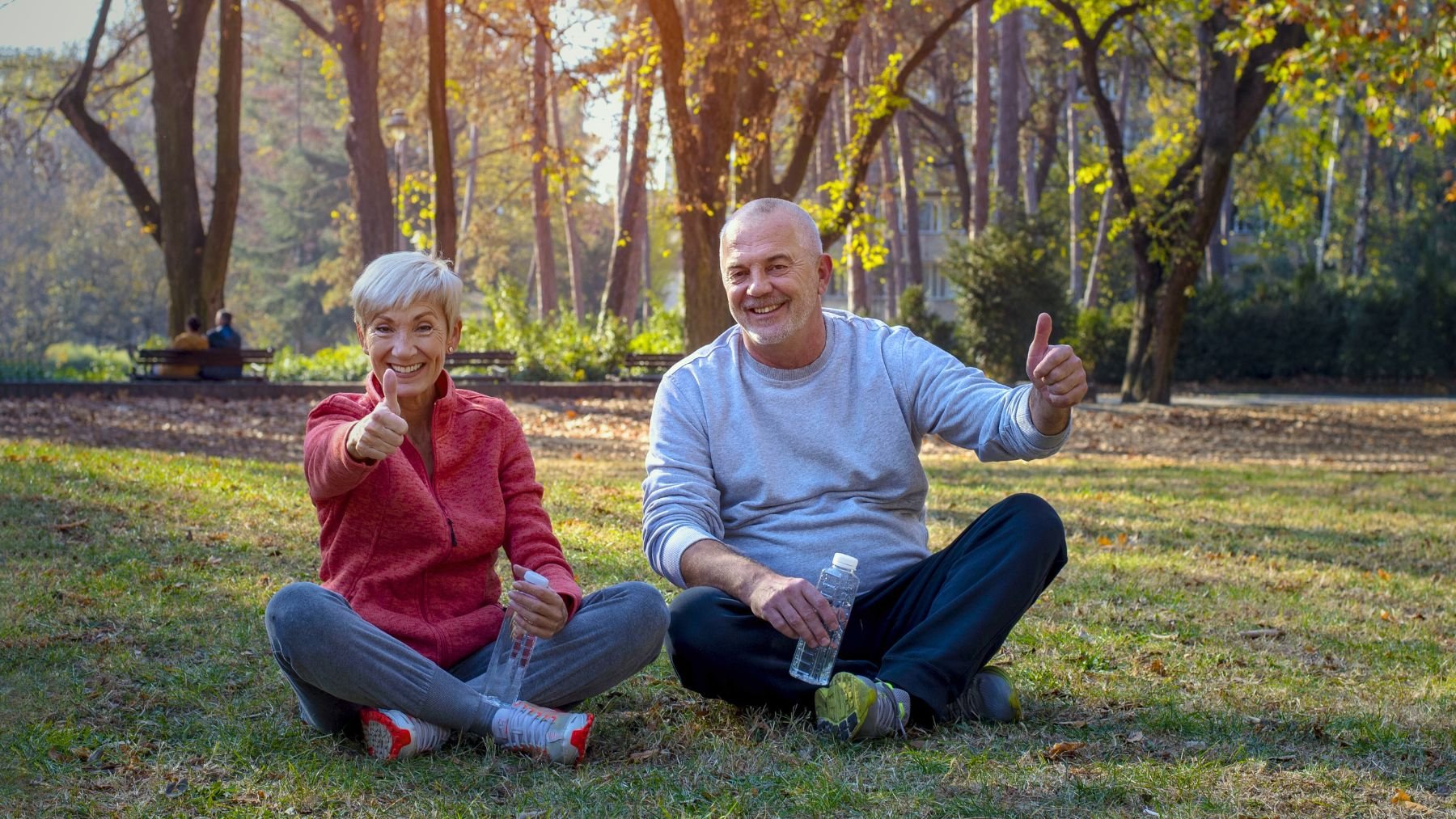During the summer, sunglasses, sunscreen, and even a wide-brimmed hat are essential accessories for outdoor adventures. However, the most vital item is not something you wear but something you carry: a reusable water bottle. For adults over 65, summer heat is not simply uncomfortable but hazardous. As the body ages, it cools itself less efficiently, and dehydration can become a silent threat.
In the following sections, we’ll explore the importance of carrying a water bottle and maintaining proper hydration for seniors. We’ll also share other methods to stay safe in the heat, from UV-protective attire to planning outings during cooler parts of the day.
Always bring a water bottle outdoors during the summer
Maintaining hydration is a priority for seniors during the summer months. As we age, the signals prompting thirst diminish, so you may not realize your body requires fluid until dehydration takes hold. This goes beyond simply sipping water when you feel thirsty. It involves a disciplined routine of drinking water consistently, regardless of immediate cravings.
Dehydration can strain your cardiovascular system, impair cognitive function, and increase the risk of dizziness or falls. In cases of prolonged heat exposure, it can even escalate to nausea, a rapid pulse, or confusion. Carrying water with you allows you to take regular, measured sips and serves as a reminder to drink during a walk or a busy errand.
Other summer habits for seniors beyond hydration
While water is your primary shield against heat, other strategies contribute to a safe and enjoyable summer experience. Consider the following:
- Wear breathable layers: Choose light-colored, loose-fitting clothing made from natural fibers such as cotton or linen. These allow air to circulate and reflect the sun’s rays, whereas synthetic materials tend to trap heat and moisture.
- Skip peak sun hours: Schedule your outdoor activities either before 10 a.m. or after 4 p.m. when ambient temperatures dip, reducing the risk of sunburn, heat stress, and other related complications.
- Cool your neck: Drape a damp, chilled cloth over your neck during brief periods outdoors. This can help regulate your body temperature while offering relief from the heat.
- Pick water-rich snacks: Incorporate hydrating foods such as cucumbers, berries, or melons into your meals. These nutrient-dense options not only enhance hydration but also provide vitamins and antioxidants without burdening your digestive system.
- Review medications: It’s important to check your prescriptions, as some drugs—like certain blood pressure medications—can heighten sensitivity to heat. Consult with your doctor to determine whether your medications might affect your body’s reaction during high-temperature conditions.
- Note warning signs: Be alert for early indicators such as headaches, muscle cramps, or sudden fatigue. These indicate that it’s time to seek shade or retreat indoors. Cool your skin with a wet cloth and rehydrate immediately to prevent further issues.
Managing heat safety can be straightforward when you take proactive measures. By keeping a water bottle handy, choosing appropriate clothing, and paying close attention to your body’s cues, you can venture outdoors with confidence. These adjustments empower you to fully savor your summer activities while minimizing the risks associated with excessive heat.

